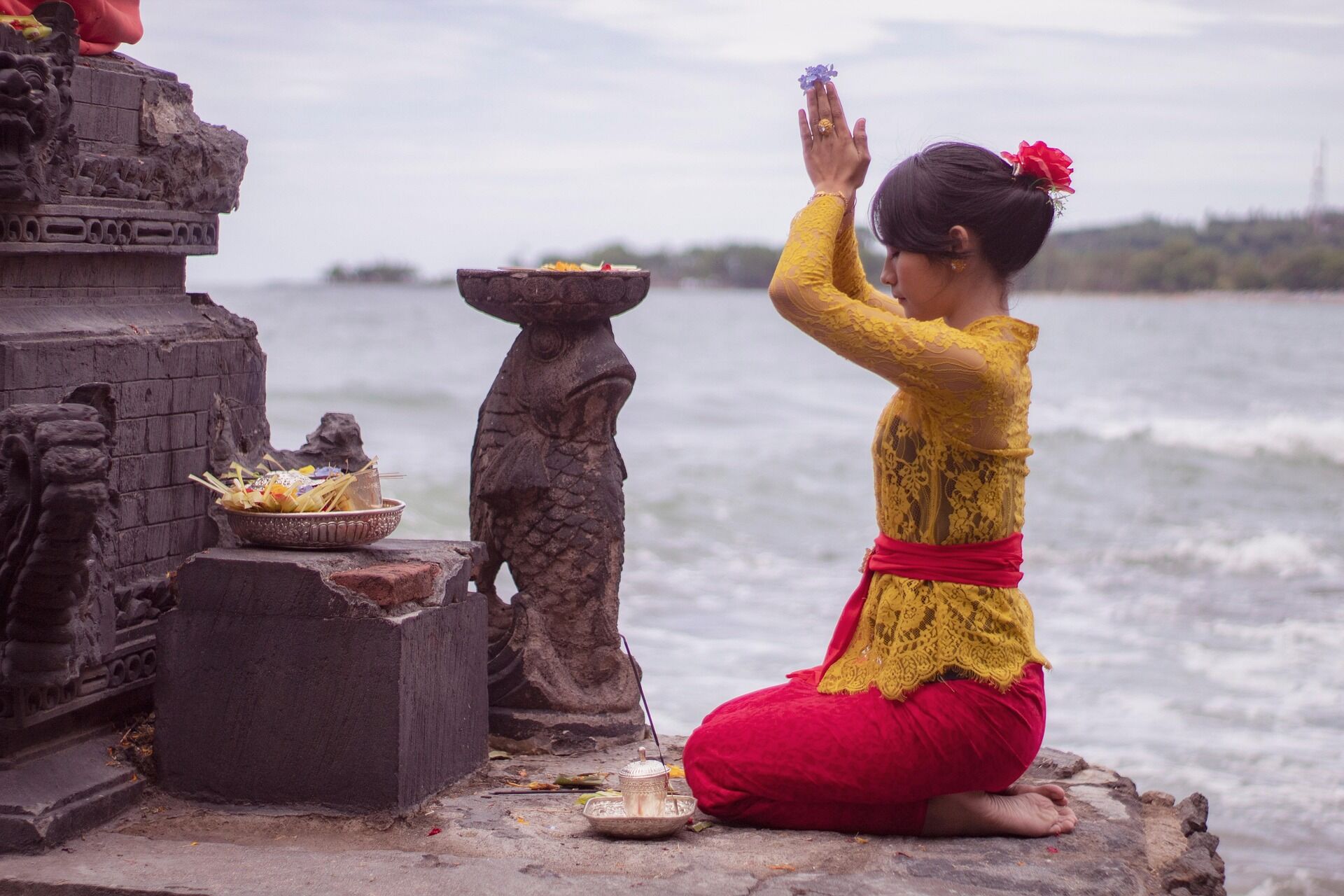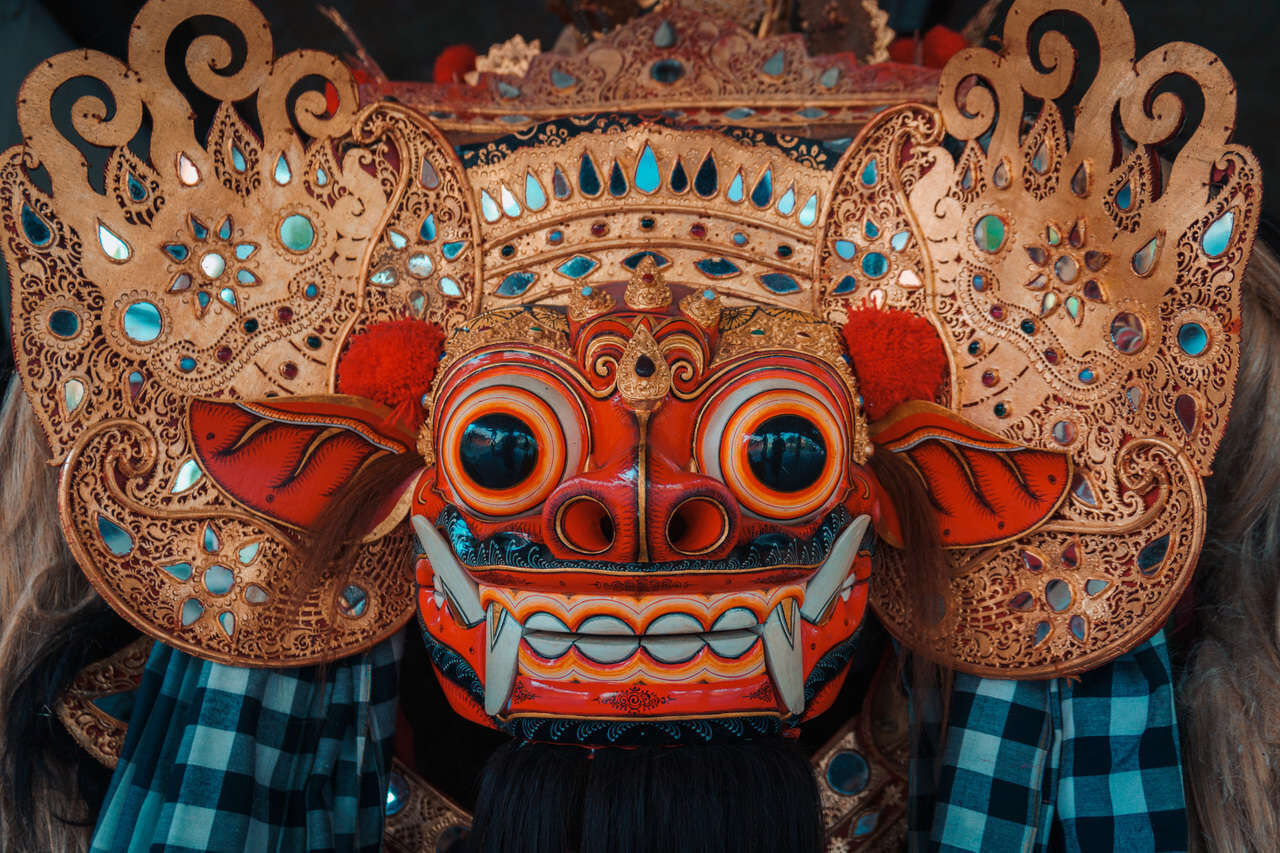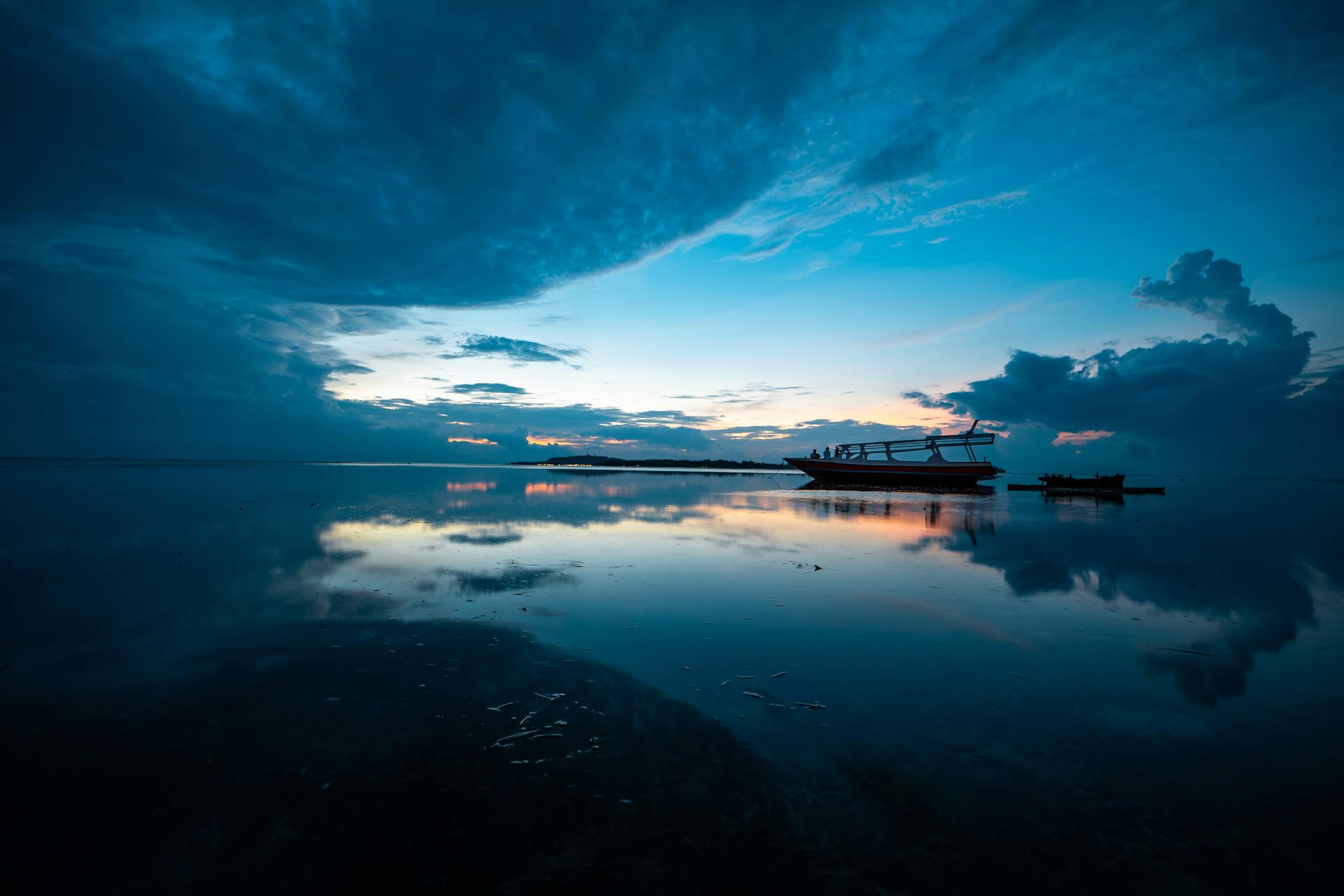Plan a secure visit to Bali, Indonesia with our 2025 safety guide! Learn about crime risks, health precautions, cultural tips, eco-friendly Bali Tours, and top providers for a safe adventure with Bali Travel. Start your journey today!
Author Bio: Written by Tony Bùi, with over 20 years of experience in the travel industry, personally guiding and organizing tours for over 100,000 travellers across Southeast Asia. This guide draws from firsthand insights, guest feedback from Legend Travel Group surveys, and official sources like holiday-weather.com, culturetrip.com, travel.state.gov, accuweather.com, and indonesia.travel. Information based on latest data as of August 27, 2025; verify before travel. Reflects Indonesia’s updated travel regulations.
Bali, a renowned island in Indonesia, located at approximately 8.65°S, 115.22°E and varying elevations from sea level to 3,000 meters, is famous for its beaches, temples, and vibrant cultural heritage, including sites like Uluwatu Temple and Ubud’s rice terraces holiday-weather.com. A tropical paradise for travelers, Bali attracts visitors for its surfing, temple visits, and festivals like Nyepi culturetrip.com. Whether exploring with guided Bali Tours or independently, prioritizing safety ensures a worry-free experience in this iconic destination. As of 2025, Bali is generally safe for tourists, with a high safety index (75–80), low violent crime, but low to medium risks of petty theft in busy areas like Kuta Beach or Ubud Market, health concerns such as dengue, and wet season hazards like slippery paths or minor flooding travel.state.gov. This guide provides practical safety tips, cultural etiquette, and eco-friendly Bali Travel options for a secure and respectful journey.
Following Indonesia’s updated travel regulations in 2025, Bali is accessible via Ngurah Rai International Airport in Denpasar or by ferry from Java, with local transport like scooters, taxis, or bicycles within the island. This guide blends safety insights, cultural tips, and sustainable Bali Travel ideas for a seamless visit.
Bali is generally safe, with low violent crime but low to medium risk of petty crimes like pickpocketing in busy areas like Kuta Beach or Ubud Market during peak hours. Exercise caution with transport, scams, and wet season hazards like slippery paths or minor flooding. Most nationalities enjoy visa-free entry for 30 days; others require a visa ($35–$50). Key sites like Uluwatu Temple cost $2–$4 (30,000–60,000 IDR) for entry; guided tours cost $15–$80 (225,000–1,200,000 IDR). Report incidents to local police (110) or Tourist Police (+62 361 754 599). Verify safety advisories via indonesia.travel or travel.state.gov.
 Learn Bali’s safety practices with expert guidance (Source: Internet)
Learn Bali’s safety practices with expert guidance (Source: Internet)Overall Risk: Low to Medium. Bali has a high safety index (75–80), comparable to Jakarta (75) but less urbanized than Singapore (85) travel.state.gov. Most visits are trouble-free, but vigilance is needed in busy areas or during festivals holiday-weather.com.
Violent Crime: Low. Violent crimes against tourists are rare; isolated incidents may occur in crowded tourist areas like Kuta or Seminyak at night travel.state.gov.
Petty Crime: Low to Medium. Pickpocketing and bag-snatching are possible in busy areas like Kuta Beach, Ubud Market, or Seminyak during peak hours (mornings or evenings); less common in quieter temple areas holiday-weather.com. A 2024 traveler reported minor pickpocketing at Ubud Market, emphasizing the need for secure bags.
Scams: Low to Medium. Common scams include overpriced taxi fares, fake guides, or unofficial tour operators at tourist sites. Negotiate fares upfront and book through reputable providers culturetrip.com.
Terrorism: Low. Bali has a history of isolated terrorist incidents (e.g., 2002 bombings), but risks remain low in 2025; remain vigilant in crowded areas during festivals travel.state.gov.
Women Travellers: Low Risk. Bali is generally safe for solo female travellers, with low harassment; dress modestly and avoid isolated areas at night culturetrip.com.
Crowded Tourist Areas During Peak Hours: Kuta Beach, Ubud Market, or Seminyak can be busy in the mornings or evenings, increasing risks of pickpocketing; secure valuables and stay alert holiday-weather.com.
Isolated Rural Areas at Night: Avoid poorly lit paths or rural areas around Ubud or northern Bali after dark to reduce risks of theft or getting lost culturetrip.com.
Unregulated Transport: Avoid unofficial scooters or taxis to prevent scams or unsafe conditions; use reputable operators like those in Denpasar or Ubud indonesia.travel.
Remote Paths in Wet Season: Avoid unguided cycling or hiking on dirt paths in rural Bali during the wet season due to slippery conditions holiday-weather.com.
Natural Disasters: Low to Medium. Minor flooding is possible in the wet season (November–March) near low-lying areas like southern Bali; check weather reports via accuweather.com holiday-weather.com. Low risk of earthquakes or volcanic activity (e.g., Mount Agung); stay informed via local alerts travel.state.gov.
Health Risks: Medium. Mosquito-borne diseases like dengue are risks in the wet season; use repellent ($1 or 15,000 IDR). Food poisoning is possible due to low hygiene standards at some stalls; eat at reputable restaurants or markets like Ubud Market. Heat exhaustion risks in the dry season (April–October) travel.state.gov. Healthcare facilities in Denpasar are adequate for minor issues; serious emergencies may require transfer to Jakarta or Singapore holiday-weather.com.
Vaccinations: Recommended: Hepatitis A, Hepatitis B, Typhoid, Tetanus; Japanese Encephalitis for rural visits; no Yellow Fever or COVID-19 vaccine required travel.state.gov.
Trail and Attraction Safety: Medium Risk. Slippery paths in rural areas or temples like Uluwatu during the wet season pose risks; wear sturdy, non-slip shoes ($5 or 75,000 IDR). Ensure cycling or surfing tours are with licensed operators; follow safety instructions at sites holiday-weather.com.
Tip: Carry a first aid kit ($2 or 30,000 IDR); drink bottled water ($0.20 or 3,000 IDR); avoid tap water; verify vaccination needs at travel.state.gov.
Cultural etiquette enhances safety and ensures a respectful experience during Bali Tours. Here’s your guide, based on current norms as of August 27, 2025:
Greetings: Offer a “selamat pagi” (good morning) with a slight nod; use both hands when paying for entrance fees or purchases to show respect, especially at temples or markets.
Dress: Wear modest clothing covering shoulders and knees for temple visits (e.g., Uluwatu Temple); a lightweight sarong ($2 or 30,000 IDR) aligns with local norms and reduces attention from scammers culturetrip.com.
Behaviour: Maintain a quiet demeanor in temples and cultural sites; ask permission before photographing locals or rituals; carry valuables discreetly to deter pickpockets. Avoid pointing feet at sacred objects, as this is disrespectful in Balinese culture. A guest shared: “Respecting Balinese customs kept us safe and enriched our visit.”
Customs: Avoid touching sacred items; respect temple rules (remove shoes); tipping is not mandatory but appreciated ($0.20–$1 or 3,000–15,000 IDR); avoid drugs or public criticism of the government (severe penalties apply). Avoid littering to preserve temples and beaches culturetrip.com.
Tip: Say “terima kasih” (thank you) to locals or guides; use eco-friendly practices like carrying reusable water bottles ($2 or 30,000 IDR) to support sustainable Bali Travel; stay vigilant in busy areas. Tony Bùi notes: “In 20 years guiding, I’ve seen respectful travellers thrive in Bali’s safe cultural heritage.”
General Tips:
Language: Carry a phrase card ($1 or 15,000 IDR) for Indonesian basics like “terima kasih”; English is common in tourist areas like Ubud and Kuta but limited in rural areas culturetrip.com.
Respect: Avoid disrupting cultural events like Nyepi; respect temple and market etiquette; stay updated via indonesia.travel.
Navigation: Use offline maps (Maps.me) with “Bali,” “Ubud,” or “Kuta” for safe navigation, especially in rainy conditions.
Eco-Tip: Choose scooters ($5–$10 or 75,000–150,000 IDR/day) or bicycles ($2–$5 or 30,000–75,000 IDR/day) to reduce emissions; avoid littering on beaches or temple grounds to preserve the environment.
 Celebrate safely at Bali’s vibrant ceremonies (Source: Internet)
Celebrate safely at Bali’s vibrant ceremonies (Source: Internet)Below is a curated list of tour options designed to enhance safety, based on the latest data from holiday-weather.com, culturetrip.com, travel.state.gov, accuweather.com, and indonesia.travel. Confirm schedules and prices before booking.
Details: Explore Uluwatu Temple, Ubud’s rice terraces, or Kuta Beach independently; suitable for cautious travellers; low to moderate difficulty.
Safety Tips: Secure valuables in a money belt ($2 or 30,000 IDR); avoid crowded tourist areas during peak hours; use reputable scooter or taxi operators; enroll in STEP for U.S. Embassy alerts travel.state.gov.
Schedule: Daily; temples like Uluwatu open 7:00 AM–7:00 PM ($2–$4 or 30,000–60,000 IDR); Ubud markets open 6:00 AM–6:00 PM (free); beaches accessible anytime; vibrant during Nyepi (March, lunar calendar).
Cost: Temple entry: $2–$4 (30,000–60,000 IDR); donations: $0.20–$1 (3,000–15,000 IDR); transport (bicycle: $2–$5 or 30,000–75,000 IDR/day); local purchases: $0.20–$10 (3,000–150,000 IDR).
Location: Bali, Indonesia (Ubud, Kuta, Seminyak, etc.).
Eco-Friendly Note: Use bicycles or scooters to reduce emissions; avoid littering on beaches or temple grounds.
Tip: Verify safety advisories at travel.state.gov; avoid touts at tourist sites; a guest noted: “Self-guided travel was safe with proper precautions.”
Details: 1-day group tour visiting Uluwatu Temple and Ubud Market with safety guidance; includes English-speaking guide, transport from Denpasar or Kuta, lunch, and entry fees; low difficulty.
Safety Tips: Stick to group itineraries; use secure bags; avoid unofficial vendors; follow guide’s safety instructions holiday-weather.com.
Schedule: Daily; departs 7:00 AM from Denpasar or Kuta hotels; returns by 4:00 PM.
Cost: $25–$40/person (375,000–600,000 IDR, includes entries).
Pick-up/Drop-off: Hotels in Denpasar, Kuta, or Seminyak.
Eco-Friendly Note: Group transport with fuel-efficient vehicles minimizes impact; supports local artisans.
Tip: Book via legendtravelgroup.com; a guest noted: “Legend’s tour ensured safety and cultural immersion.”
Details: 1-day guided tour visiting Uluwatu Temple and cycling through Ubud’s rice terraces with safety tips; includes English-speaking guide, transport from Denpasar or Kuta, lunch, and entry fees; low to moderate difficulty.
Safety Tips: Use reputable operators; secure valuables during cycling; follow guide’s safety instructions for rural visits; avoid fake guides culturetrip.com.
Schedule: Daily; departs 6:30 AM from Denpasar or Kuta hotels; returns by 4:00 PM.
Cost: $30–$50/person (450,000–750,000 IDR, includes entries).
Pick-up/Drop-off: Hotels in Denpasar, Kuta, or Seminyak.
Eco-Friendly Note: Small groups reduce environmental impact; supports local communities.
Tip: Book via localvietnam.com; a guest noted: “The combo tour was safe and enriching.”
Details: 2–3 day tour visiting Uluwatu Temple, Ubud’s rice terraces, and Kuta Beach with safety guidance; includes English-speaking guide, transport, accommodation, meals, and entry fees; low to moderate difficulty.
Safety Tips: Enroll in STEP; carry emergency numbers (110, +62 361 754 599); avoid unregulated transport; follow guide’s safety tips for rural visits holiday-weather.com.
Schedule: Daily; departs from Denpasar, Kuta, or Seminyak hotels; returns after 2–3 days.
Cost: $80–$200/person (1,200,000–3,000,000 IDR, includes entries).
Pick-up/Drop-off: Hotels or custom locations in Denpasar, Kuta, or Seminyak.
Eco-Friendly Note: Uses eco-lodges and fuel-efficient transport; supports local communities.
Tip: Book Bali Tours via legendtravelgroup.com or WhatsApp (+84 825862222); a guest noted: “The multi-day tour was a safe, immersive journey.”
Self-Guided Exploration: Flexible and cost-effective, ideal for vigilant independent travellers in safe areas.
Group Cultural Tours: Affordable and secure, perfect for guided safety and cultural insights.
Combo Cultural and Adventure Tours: Blend safety tips with cultural and adventure experiences for a comprehensive journey.
Multi-Day Cultural Tours: Offer in-depth exploration of safe areas with expert guidance.
Eco-Friendly Note: Group and multi-day tours use fuel-efficient transport or bicycles, supporting Indonesia’s green tourism goals.
 Begin your safe travel day with Bali’s tranquil ambiance (Source: Internet)
Begin your safe travel day with Bali’s tranquil ambiance (Source: Internet)Key safe travel opportunities include:
Nyepi (Balinese New Year): Typically March (lunar calendar), festive but quiet with medium theft risks in markets; secure valuables; transitioning weather (24–33°C); check dates at indonesia.travel.
Galungan: Varies (lunar calendar), vibrant with temple ceremonies; low theft risk; dry season (20–32°C); check dates at indonesia.travel.
Cycling and Temple Visits: April–October for clear conditions and low health risks; November–March requires caution due to slippery paths and flooding risks holiday-weather.com.
Dry season (April–October, 20–32°C) is safest for cycling, temple visits, and festivals. Wet season (November–March, 24–33°C) has higher health and trail risks but is suitable for indoor cultural experiences. Morning visits (6:00 AM–10:00 AM) avoid crowds and hazards. Verify safety advisories via travel.state.gov.
Personal Safety: Secure valuables in a money belt ($2 or 30,000 IDR); avoid crowded tourist areas during peak hours; use reputable scooter or taxi operators; enroll in STEP for U.S. Embassy alerts travel.state.gov.
Health Precautions: Drink bottled water ($0.20 or 3,000 IDR); use mosquito repellent ($1 or 15,000 IDR) in wet season; get vaccinated (Hepatitis A, B, Typhoid); stay hydrated in dry season; avoid stray animals to prevent rabies travel.state.gov.
Trail and Attraction Safety: Wear sturdy, non-slip shoes ($5 or 75,000 IDR); avoid slippery paths in rural areas or temples during wet season; ensure cycling or surfing tours are with licensed operators; follow safety instructions at sites like Uluwatu Temple holiday-weather.com.
Scam Prevention: Negotiate scooter or taxi fares upfront; avoid fake guides at tourist sites; book through reputable operators like those in Denpasar or Ubud; keep receipts for payments culturetrip.com.
Emergency Contacts: Save Police (110), Tourist Police (+62 361 754 599); report incidents to local police or hotels.
Eco-Tip: Use reusable water bottles and bags to reduce waste; opt for bicycles or scooters for sustainable travel.
Tip: Stay informed via travel.state.gov; carry small IDR notes for purchases; use reputable operators for transport and tours indonesia.travel.
 Capture the authentic charm of Bali’s safe cultural scene (Source: Internet)
Capture the authentic charm of Bali’s safe cultural scene (Source: Internet)Pack for a secure, sustainable travel experience:
Documents: Passport (valid 6+ months), Indonesia visa ($35–$50 if required), wallet ($2–$3 or 30,000–45,000 IDR), tour bookings.
Clothing: Modest clothing covering shoulders and knees; lightweight sarong ($2 or 30,000 IDR) for temple visits; quick-dry clothing and raincoat ($2 or 30,000 IDR) for wet season; lightweight clothing and light jacket ($5 or 75,000 IDR) for dry season; sturdy, non-slip shoes ($5 or 75,000 IDR); hat ($2 or 30,000 IDR).
Essentials: Reusable water bottle ($2 or 30,000 IDR); snacks ($0.20–$1 or 3,000–15,000 IDR, e.g., pisang goreng); small backpack ($2 or 30,000 IDR); sunscreen ($1 or 15,000 IDR); insect repellent ($1 or 15,000 IDR).
Tech: Phone with translation apps (e.g., Google Translate); charger ($5–$10 or 75,000–150,000 IDR); local SIM ($2–$3 or 30,000–45,000 IDR); waterproof camera ($20 or 300,000 IDR) for photos.
Eco Items: Reusable tote ($1 or 15,000 IDR) for market purchases; phrase card ($1 or 15,000 IDR) with Indonesian basics.
Extras: Small IDR notes for donations or purchases; small first aid kit ($2 or 30,000 IDR); umbrella ($2 or 30,000 IDR) for wet season; money belt ($2 or 30,000 IDR) for valuables. Tip: Pack light (1 small bag, max 5 kg); reusable items support sustainability.
Travel Tour Costs
Self-Guided Exploration: Temple entry: $2–$4 (30,000–60,000 IDR); donations: $0.20–$1 (3,000–15,000 IDR); transport (bicycle: $2–$5 or 30,000–75,000 IDR/day).
Group Cultural Tours: $25–$40 (375,000–600,000 IDR, includes entries).
Combo Cultural and Adventure Tours: $30–$50 (450,000–750,000 IDR, includes entries).
Multi-Day Cultural Tours: $80–$200 (1,200,000–3,000,000 IDR, includes entries). Safety-Related Costs
Money Belt: $2 (30,000 IDR).
Local SIM for Emergency Calls: $2–$3 (30,000–45,000 IDR).
Travel Insurance (Recommended): $10–$30 (150,000–450,000 IDR).
Sturdy Shoes: $5 (75,000 IDR). Other Costs
Local Snacks (e.g., pisang goreng, satay): $0.20–$1 (3,000–15,000 IDR).
Souvenirs (e.g., sarongs, handicrafts): $0.20–$10 (3,000–150,000 IDR).
Donations: $0.20–$1 (3,000–15,000 IDR). Total Daily Cost (Per Person)
Budget: $10–$30 (self-guided, snacks, transport).
Mid-range: $30–$60 (group tour, purchases).
Luxury: $60–$120 (private tour, premium souvenirs). Tip: Budget $10–$120 for tours, safety items, or transport, and $0.20–$10 for purchases or add-ons.
Safety Tips: Secure valuables with a money belt; avoid crowded tourist areas during peak hours; use reputable scooter or taxi operators; enroll in STEP; carry emergency numbers (110, +62 361 754 599) travel.state.gov.
Etiquette: Use “selamat pagi” greeting; dress modestly in temples; avoid disrupting cultural sites; respect temple etiquette to reduce scam risks culturetrip.com.
Access: Choose self-guided travel in safe areas, group tours for guided safety insights, or multi-day tours for deeper exploration.
Schedules: Temples open 7:00 AM–7:00 PM; peak seasons (April–October) require early booking; check advisories before travel.
Sustainability: Use scooters or bicycles; carry reusable items; support local artisans with fair purchases.
Navigation: Use offline maps (Maps.me) for safe areas like “Bali,” “Ubud,” or “Kuta.”
Weather: Dry season (Apr–Oct, 20–32°C) safest; wet season (Nov–Mar, 24–33°C) requires caution for slippery paths and flooding; check forecasts via accuweather.com.
Health Note: Use bottled water; apply mosquito repellent in wet season; stay hydrated in dry season; avoid stray animals travel.state.gov.
Is Bali safe for tourists? Yes, with low to medium risk (Safety Index: 75–80); low violent crime but medium petty crime in busy areas travel.state.gov.
What are common safety concerns in Bali? Pickpocketing in busy areas, scams (e.g., overpriced taxi fares), and health risks like dengue; secure valuables and use reputable operators holiday-weather.com.
Is Bali safe for solo female travellers? Yes, with low risk; dress modestly and avoid isolated areas at night culturetrip.com.
What health precautions should I take? Drink bottled water, use mosquito repellent, get vaccinated, and avoid stray animals travel.state.gov.
What areas should I avoid? Crowded tourist areas during peak hours, isolated rural paths, and remote paths in wet season; stick to safe zones like Uluwatu Temple holiday-weather.com.
How do I contact help in an emergency? Call Police (110), Tourist Police (+62 361 754 599); enroll in STEP travel.state.gov.
Enhance your safe Bali journey with eco-conscious tours from Legend Travel Group:
Bali Cultural Eco-Tour ($25–$40/person, 1 day): Guided temple and market tour with safety tips, using sustainable practices.
Bali Cultural and Adventure Trail ($80–$150/person, 2 days): Explore safe cultural and adventure sites with eco-friendly transport.
Indonesia Explorer ($150–$250/person, 3 days): Multi-site adventure in safe areas with eco-lodges and community-focused activities. Prices include guides, transport, and fees; group discounts available. Explore options at legendtravelgroup.com or contact sales@legendtravelgroup.com / WhatsApp (+84825862222) for your Bali Travel plans.
Prioritizing Bali Safety with cultural etiquette—modest attire, polite greetings like “selamat pagi,” and cautious behavior—unlocks a secure, vibrant journey through this Indonesian paradise. With tour costs from $15–$80, eco-friendly Bali Tours, and safe hubs like Uluwatu Temple and Ubud’s rice terraces, this trip offers peace of mind and sustainability. Whether choosing a self-guided or guided experience with Bali Travel, stay informed via travel.state.gov and respect local customs for the best experience. Safe travels!
Sources:
Safety Information: holiday-weather.com, culturetrip.com, travel.state.gov, indonesia.travel
Weather Information: accuweather.com
Favorite experiences booked by travelers